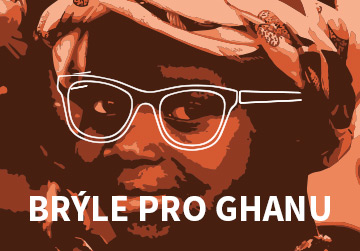A DISASTER TOOK PLACE IN GHANA AND NOBODY NOTICED

A law passed parliament recently and the finalizing process including signing by the President of Ghana has commenced.
It’s a law on what a foreign investor in a certain sector of industry can do with his investment in Ghana.
Let me keep the surprise a little but give you details on what is required and regulated.
The investor needs to register its company and investment through the GIPC and after that:
A Ghanaian partner has to own the minimum of 51% of the company (in other words as soon as your money is in, you lose your say over it)
80% of management has to be Ghanaian other staff 100% Ghanaian only. (So the foreign investor can be voted out all the time 5 against 1 during board meetings).
Only buy anything you need for your business from Ghanaian suppliers (even up to 10% more expensive than from others)
Trading in your own products shall be done by 100% Ghanaian owned companies.
Transporting your own products shall be done by a majority (60%+) Ghanaian owned company.
Storage of your own products shall be done by a 100% Ghanaian owned company.
In addition you are not allowed to supply the ports, the harbors nor the mining industry.
SURPRSISE we are talking about the recently passed Downstream Petroleum Bill.
Shell, Total and Puma are the only foreign oil companies operating in Ghana at the moment and have been in Ghana for many years. This Downstream Petroleum Bill limits their market activities to operating a petrol station under their Brand License only, at least when they have 100% Ghanaian staff at them.
At least the laws of Ghana are (supposedly) to be non-retroactive, in other words it shouldn’t affect any company who was operating in Ghana until the law was passed.
The same thing had been said on the Local content Bill on Customs activities under the Customs Act article 43 and despite also not being retroactive over 22 worldwide players within that industry have been harassed by it because the Ghanaian sector players are all thinking “now we have a law stating that only Ghanaians can be active in our sector, so when are you kicking the foreigners out?”.
Why doesn’t the Government come with an official statement stating that;
None of the Local Content Laws are retroactive and thus not affecting the foreign companies currently operating in Ghana. Or is that too much to ask?
On this part I am only writing about the affected companies, but what do think the consequences will be on Foreign Direct Investments (FDI).
I think as soon as one of the global players in the industry decides to say, this is too much let’s leave Ghana to the Ghanaian business man and woman only, Mr. Grant can “close shop” at the GIPC because no foreign investor will like to invest in Ghana when you don’t have a say over your investment.
Besides the negative effects this bill will have on investing in Ghana, it also creates (like in Nigeria) companies who are involved in “fronting”. Very simply explained, fronting means, that the company is officially owned by a Ghanaian (front man), but behind the scene still foreign.
The Ghanaian gets a good fee without a real investment; several legal documents (mostly fake loan agreements with the original company as equity for it) guaranty the un-official ownership of the company.
The biggest danger for this is, especially in the Downstream Petroleum Sector, that the front man disappears as soon as some less desired events like an explosion, non-payment of taxes, floating safety or compliance regulations etc. take place.
Companies, especially of the size of Total and Shell can afford to continue doing business after closing its Ghana operations down, but can a country afford this type of bad investment news when Shell (annual turnover more than 5 times Ghana’s GDP) or Total (annual turnover more than 3 times Ghana’s GDP) are leaving Ghana?
Although I also think that Ghana deserves to be among the most developed countries in the world and Ghanaians should be able to hold shares in companies like these I don’t have any doubts to state that this is not the way to get there.
None of the best performing countries in Africa have ever passed regulations like this. Recently Zimbabwe started to offer 99 years leasehold on land for farming which is accessible for the previous white Zimbabwean farmers as well.
Mauritius and the Seychelles opened up more than any other Africa country before and the real growth leaders Ethiopia and Ivory Coast don’t have and are not working on any legislation to achieve this, because they understand that this can harm their FDI agenda.
On the website of Africa’s fastest growing economy (Rwanda) I found the following:
There are neither statutory limits on foreign ownership or control, nor any official economic or industrial strategy that discriminates against foreign investors.
So I ask myself what is the real reason behind pushing this Local Content Agenda?
Can it be greed, or laziness taking companies activities without having to compete, or does our government have information which it is not sharing with the general public why they are pushing the local content agenda the way it is being pursued at this moment?
Every time I study any Local Content proposal I see the open and hidden risks and faults and I don’t understand why this haste and push. At first I thought it will do well during the election and it will soon blow over when people start realizing what the consequences will be.
We all know now that nothing blow over and we will find out what will happen with our motherland in the years to come.
Last but not least, people pushing the local content agenda are always using the “excuse” that the main reason for Local Content laws is to have strong Ghanaian (owned) companies which will create wealth for Ghanaians.
Let me give you one example why that is not even true:
Kofi, a 58 year old Ghanaian who became a large local market player in his sector, competing with foreign and local companies created an international market value for his company of over 300 million USD. He has a lovely daughter who became a doctor, a useless son who became a playboy without any interest in company and a wife who is pushing him to retire. He makes the decision to sell his 100% private owned company when he reaches the respectable age of 60. Several foreign companies are interested to buy his company due to his good brand name and market share, but, Kofi is active in a sector in which foreign owned companies are not allowed to operate and is “forced” to sell off his shares to another local company.
The local players are really old fashioned lean back market players and know Kofi wants out, so offering more than low, finally someone (Kwame) agreed to pay 60 million Usd, 10 million USD cash when the transfer takes place and 10 million each year for the next 5 years.
So now Kofi received 10 million USD instead of 300 and is depending on Kwame’s ability to runs his company for the next 5 years to collect the rest of his money. Knowing Ghana I can safely say that any year’s money extra you is like “a gift of God”, Kwame will give you a heart attack if you are not careful.
Am I a visionary? No, just a Ghanaian with common sense who knows how things work in Ghana.
IF YOU ALSO THINK THAT THE DOWNSTREAM PETROLEUM BILL IS A DISASTER FOR GHANA AND THE INVESTMENT CLIMATE, SPREAD THIS ARTICLE,
Nico van Staalduinen

